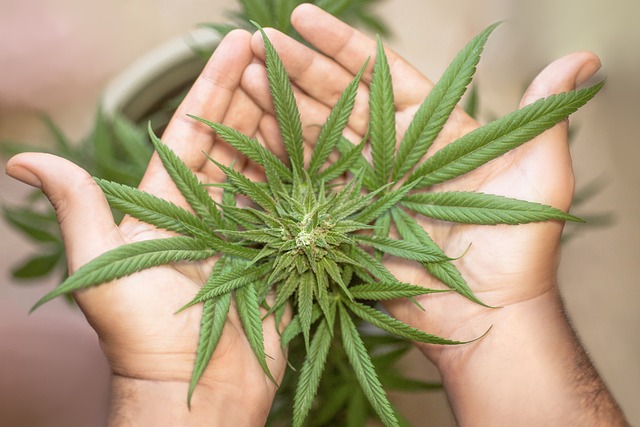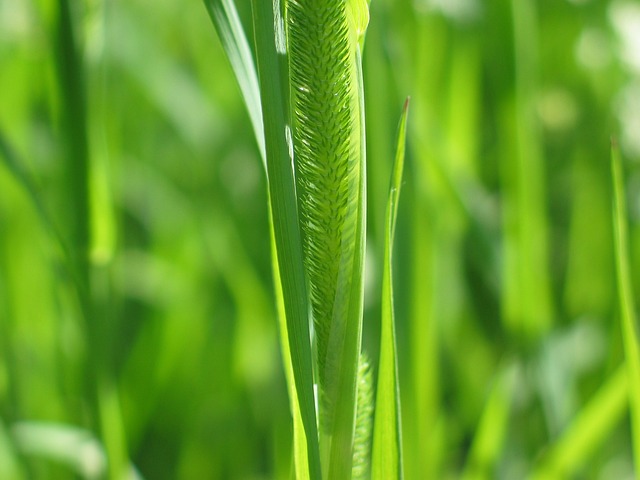THCA buds, which are rich in the non-psychoactive compound THCA and found in raw cannabis plants, have emerged as a natural alternative for those seeking mood elevation and a sense of well-being without the mind-altering effects of THC. These buds offer an uplifting, energizing experience that promotes a positive mood enhancement. Unlike its psychoactive counterpart THC, THCA interacts with the endocannabinoid system to provide a focus and relaxation effect, making it a favored option for therapeutic use. Initial research suggests that THCA may offer benefits for mood without impairing cognitive function, and users report a gentle uplift in spirits when consuming THCA buds, whether through juicing or smoking. While the full scope of THCA's health benefits is still being researched, its potential applications include anti-inflammatory and neuroprotective properties, which could expand its therapeutic uses. It's important for individuals to use THCA buds responsibly, taking into account their own health conditions and following legal guidelines. As interest in the wellness benefits of cannabis continues to grow, THCA buds stand out as a promising option for euphoria seekers looking for a natural and effective way to enhance their mood and overall sense of well-being.
Exploring the nuanced effects of THCA buds, this article delves into the multifaceted relationship between these flowering compounds and human well-being. Known for their potential to induce a euphoric state, THCA flowers offer a spectrum of benefits that extend beyond the psychological realm. From therapeutic applications to mental health support, understanding how THCA buds differ from other cannabinoids is pivotal for both novice and experienced users. As we navigate through the science behind their effects, dosage guidelines, and legal considerations, safety and personalized experience become paramount. This guide aims to equip readers with the knowledge necessary to responsibly enjoy the euphoric effects of THCA buds, ensuring they maintain peak potency and freshness. Join us as we explore the intricacies of THCA and its role in enhancing your well-being.
- Understanding THCA Flowers and Their Potential Euphoric Effects
- The Science Behind THCA and Its Psychological Impact
- Exploring the Therapeutic Benefits of THCA Buds
Understanding THCA Flowers and Their Potential Euphoric Effects

THCA, or tetrahydrocannabinolic acid, is a non-psychoactive cannabinoid found in raw cannabis plants, which degrades into THC upon heating. THCA buds have garnered attention for their potential euphoric effects, which are distinct from those of its decarboxylated counterpart, THC. These buds are celebrated for their uplifting and energizing properties, often preferred by individuals seeking a positive mood enhancement without the intense psychoactive impact associated with THC. When consumed in their raw form, such as through juicing or smoking, THCA interacts with the body’s endocannabinoid system, potentially offering a sense of well-being and euphoria without the cognitive impairment that may accompany high levels of THC.
Research into the effects of THCA is ongoing, but anecdotal reports and preliminary studies suggest that these buds might provide a gentle yet noticeable uplift in mood and spirits. Users often report feeling a sense of focus combined with relaxation, making THCA buds a popular choice for those looking to experience the therapeutic benefits of cannabinoids without strong psychoactive effects. It’s important to approach the use of THCA buds with caution, as individual responses can vary significantly, and consuming higher doses or combining it with other substances could lead to different effects. Always consider your personal tolerance and consult with a healthcare professional before incorporating THCA buds into your wellness routine, especially if you have pre-existing health conditions or take other medications.
The Science Behind THCA and Its Psychological Impact

Tetrahydrocannabinolic acid (THCA) is the non-psychoactive precursor to THC, the primary psychoactive component found in cannabis. THCA is present in raw cannabis plants or flowers and undergoes decarboxylation to become THC when exposed to heat, such as during combustion or vaporization. Research indicates that THCA interacts with the body’s endocannabinoid system, which plays a significant role in regulating mood, appetite, pain sensation, and memory, among other functions. This interaction is believed to contribute to the psychological effects associated with cannabis consumption.
When it comes to the psychological impact of THCA, studies suggest that THCA buds can produce a distinct euphoric effect without the intoxicating high typically associated with THC. Users often report a sense of well-being and uplifted mood, which is attributed to THCA’s affinity for the CB1 receptors in the brain. This affinity may modulate neurotransmitter release, potentially influencing feelings of happiness and reducing symptoms of depression and anxiety. The therapeutic properties of THCA are being explored for their potential to alleviate various psychological conditions, offering a natural alternative for those seeking mood elevation without psychoactive effects. As research continues to unfold, the scientific community is increasingly interested in the unique benefits of THCA buds for euphoria and their role in the therapeutic applications of cannabis.
Exploring the Therapeutic Benefits of THCA Buds

THCA buds, rich in tetrahydrocannabinolic acid (THCA), have garnered attention for their potential therapeutic properties. Unlike its decarboxylated form THC, THCA is non-psychoactive, offering a unique avenue for individuals seeking the health benefits of cannabis without the traditional ‘high’ associated with THC. THCA buds are being explored for their ability to promote euphoria and elevate mood, making them a subject of interest in natural wellness practices. Preliminary research suggests that THCA may interact with the body’s endocannabinoid system, influencing mood regulation and potentially alleviating symptoms related to stress and anxiety. The presence of this cannabinoid in its acidic form is associated with anti-inflammatory and neuroprotective effects, further expanding its potential therapeutic benefits. Users interested in harnessing THCA buds for euphoria typically consume them through smoking or vaporizing, which allows for the rapid onset of effects, or as edibles for a longer-lasting experience. As with any substance, it is crucial to approach their use responsibly and with an understanding of one’s unique physiology and local regulations.
THCA flower, a precursor to THC in cannabis, has garnered attention for its potential euphoric effects and therapeutic benefits. This article has delved into the science behind THCA’s psychological impact, highlighting how it interacts with the endocannabinoid system to promote well-being. Additionally, the exploration of THCA buds’ therapeutic advantages provides a compelling case for their inclusion in wellness routines. While the effects of THCA can be profound and varied, users should approach its consumption with caution, as individual responses may differ. It is always recommended to consult with a healthcare professional before incorporating THCA buds for euphoria or therapeutic purposes into one’s regimen. Understanding the nuances of THCA flower’s effects is key to making informed decisions about its use.
